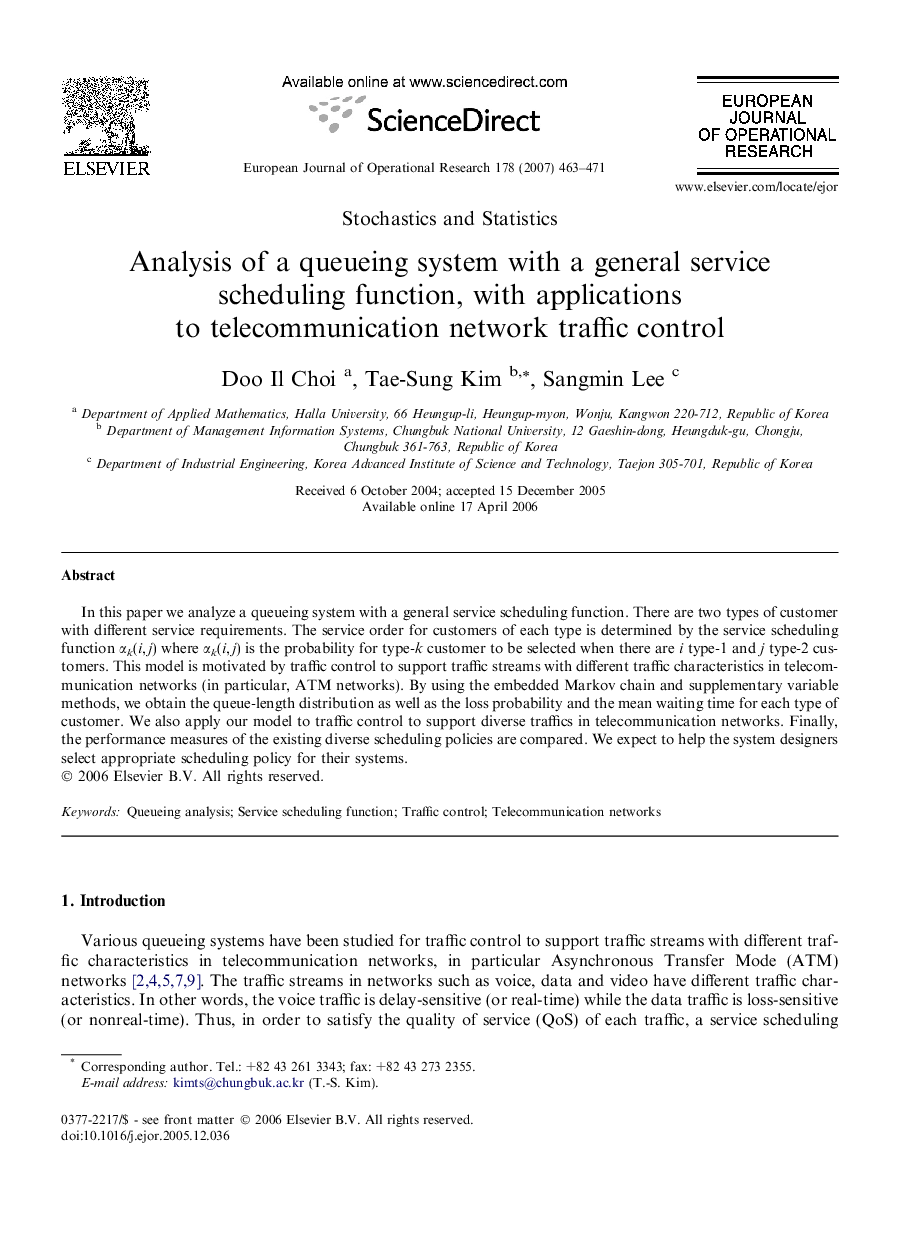| Article ID | Journal | Published Year | Pages | File Type |
|---|---|---|---|---|
| 479173 | European Journal of Operational Research | 2007 | 9 Pages |
In this paper we analyze a queueing system with a general service scheduling function. There are two types of customer with different service requirements. The service order for customers of each type is determined by the service scheduling function αk(i, j) where αk(i, j) is the probability for type-k customer to be selected when there are i type-1 and j type-2 customers. This model is motivated by traffic control to support traffic streams with different traffic characteristics in telecommunication networks (in particular, ATM networks). By using the embedded Markov chain and supplementary variable methods, we obtain the queue-length distribution as well as the loss probability and the mean waiting time for each type of customer. We also apply our model to traffic control to support diverse traffics in telecommunication networks. Finally, the performance measures of the existing diverse scheduling policies are compared. We expect to help the system designers select appropriate scheduling policy for their systems.
